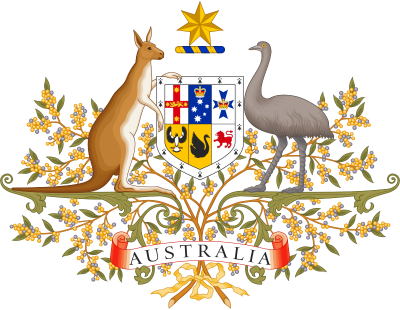
In this post series, we’ll take a look at Estate & Trust Litigation Battles and Elder Law issues occurring around the world. We’ll explore how the laws regarding Estate, Trust, and Elder Law differ between countries.
Our first case takes place in Australia. This is a case that has it all – murder, betrayal, a contested will, a huge estate, and financial elder abuse to boot. Neville Wran, a politician and businessman who Australia’s prime minister called, “one of the most significant figures of his generation,” died in April of 2014 in Elizabeth Bay, Australia. He was a renowned politician in Australia, termed “the architect of modern Sydney” who later became very wealthy through business ventures such as “OzMail,” one of Australia’s major internet service providers. He is said to be worth over $40 million dollars, and now his 68 year old adopted son Glenn has gone to court to try and get a chunk of that money.
Now, to give a bit of background on this family – Neville, who was, we can only imagine, a dashing young man with money and connections, married former showgirl Marcia Oliver and adopted her son Glenn Wayne in 1946. After 30 years of marriage, they parted ways and he married 28 year old Jill Hickson. He and Jill had two children, one of whom is currently being held for trial on murder charges.
This is a classic tale of estate litigation in which a son is fighting his stepmother for his father’s money. Glenn Wayne Wran, the child Neville adopted from his first wife, is taking his stepmother Jill Hickson Wran to court for a larger slice of the pie. Under New South Wales law (the state in Australia where Sydney is located), if an “eligible claimant” believes they have not been “adequately provided for” they can make a claim against the deceased’s “actual estate.” Now, this is where Australian estate law begins to differ from U.S. estate law. Under U.S. estate law, a person’s “estate” includes all of their assets in full, including real property, funds, stocks, any asset held jointly with other partners, and digital property if specified. In some Australian states there is a wrinkle in estate law which creates two types of estates. Under New South Wales law, a person has both an “actual estate” which includes assets held solely in their own name, and a “notional estate,”which could include family trusts, real estate held with a joint tenant, and Australia’s version of a pension fund – “superannuation.” New South Wales is apparently one of the few states in Australia in which a claimant can have properties or assets that were previously distributed by the deceased, or distributed after his/her death, included in their claim against the estate. Thus, the value of the estate is increased, and in many cases allows the claimant the opportunity to make a claim on assets which would not otherwise have been part of the estate. Naturally, as is often the case with law, there are many intricacies and caveats to this law. Nevertheless, we have essentially two interesting differences between U.S. estate law and Australian estate law – the existence of the “notional” vs. “actual” estate, and the ability of a claimant to petition the court for a larger slice of an estate pie if they believe they have not be provided for adequately. Let’s take a closer look at this second difference.
Under California estate law, one is able to retain an attorney to help them contest a will, trust, or estate matter of almost any nature. Whether or not they will have any success is another matter. The outcome would depend upon facts and hard evidence. Examples include a will being changed prior to one’s death by someone who no longer had mental capacity (a case of financial elder abuse), or a trustee mismanaging trust funds. In general, the claimant must show legal evidence and reason for their claim. In New South Wales, however, the courts seem to function in a manner which is more “fair,” in which there is more wiggle room for the claimant. Under NSW law, Glenn Wayne Wran is able to get a larger share of his father’s estate for reasons such as “estrangement” deemed to be primarily his father’s fault, his own personal financial need, or the “fairness” of giving one claimant money vs. other beneficiaries. As an Estate Planning and Elder Law attorney in Walnut Creek, I am frequently in court and can only say that reasons like that would never fly with a judge in Contra Costa or Alameda County. While laws like this may allow for more “fairness” in a sense, it seems like they also open the door for a significant amount of trust and estate litigation. Not to mention money for attorneys that would otherwise remain in a trust or beneficiary’s hands. But if it works for New South Wales, who am I to say anything against it?
Estate, Will, and Trust law can differ widely among countries. The thing it seems to have in common is that the law can lead to many complications if not followed to the t. In our next installment of Estate Law Around the World, we’ll look at yet another country and how their estate planning and litigation laws differ from our own.
If you have a question about a will, trust, or probate matter in California, call The Law Offices of Matthew B. Talbot, in Walnut Creek at 925-322-1763. We offer a free, 30 minute consultation.

Hi, very nice website, cheers!
Need cheap hosting for just $10/year? Or VPS, where plans starts with $6/Mo?
Check here: reliable-webhosting.com